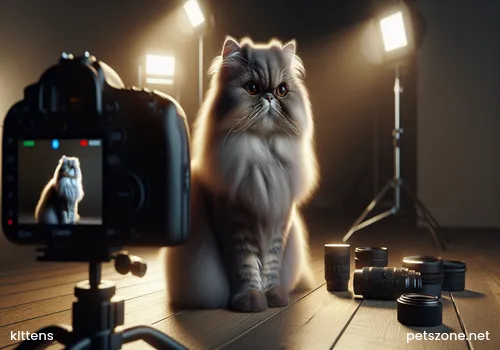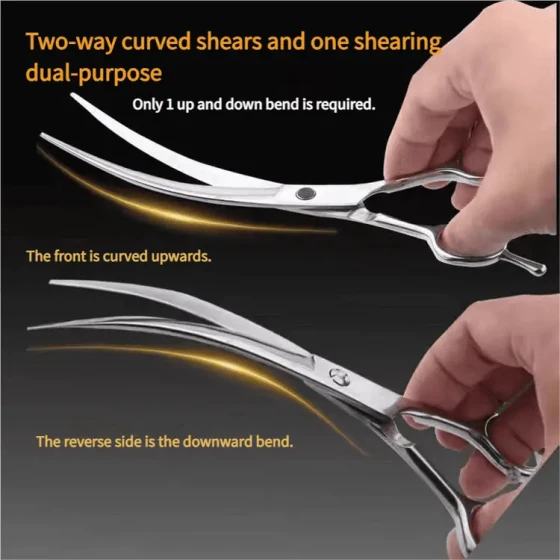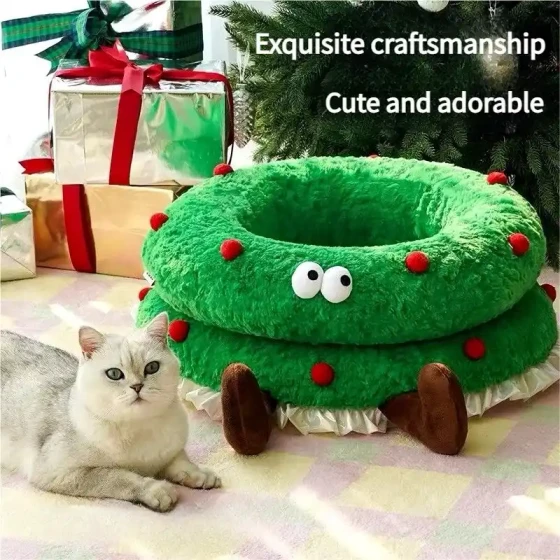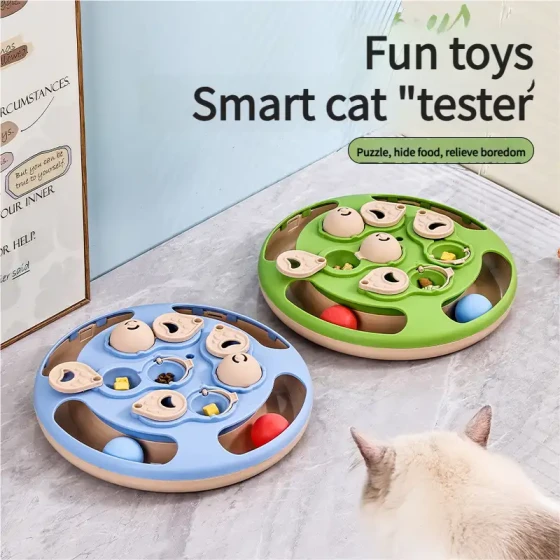Can Kittens Eat Chicken Breast_Scientific Guide to Feeding Kittens Chicken
Many new cat owners wonder if kittens can eat chicken breast. Simply put, cooked, unseasoned chicken breast can be given as a snack or food supplement for kittens, but it cannot be the main food. Kittens are in a rapid growth phase and have very specific and comprehensive nutritional needs. Feeding only chicken breast cannot meet all their nutritional requirements and may lead to malnutrition or affect their health in the long run.

Kitten's Nutritional Secrets: Why Can't They Eat Only Chicken Breast?
Did you know? Tiny kittens carry enormous energy demands inside! Their weight can double or even triple in just a few months, growing as fast as a "rocket zooming"! To support this "rapid growth," kittens need much higher amounts of protein, amino acids, minerals, and certain vitamins than adult cats.
Cats are natural "carnivores," and their digestive system and nutritional needs require most energy and essential nutrients from animal-based foods. Although chicken breast is a high-quality protein source, much like the chicken breast fitness enthusiasts eat — low-fat and high-protein — cats require more than just that.
The "Blind Spot" of Chicken Breast
Pure chicken breast lacks taurine, which is essential for a cat's heart, vision, and reproductive system. Long-term deficiency can have severe consequences, such as blindness or heart problems — this is not something to take lightly! Just like we cannot eat only rice without vegetables, nutrition must be balanced.
Moreover, homemade cat meals, including feeding only chicken breast, may lack other essential nutrients cats require, such as calcium, phosphorus, vitamin A, and B vitamins. Especially B vitamins, which are heat-sensitive and can be lost during cooking. Improper calcium-to-phosphorus ratios may also affect kitten bone development, causing bone pain or deformities.
Scientific Feeding of Kittens: How to Arrange Chicken!
Although chicken breast cannot be the main food, it doesn’t mean it has no place. Properly giving cooked, boneless, skinless, unseasoned chicken breast can serve as a healthy little treat or be mixed into kitten food to enhance palatability.
"Chicken" is Irreplaceable but in Moderation
International pet nutrition experts generally recommend that chicken meat should not exceed 10% of a cat’s total daily calorie intake. For kittens under 6 months old, about 2 teaspoons of cooked chicken per day is appropriate.
Remember, "boiling" is the best way to prepare chicken for cats, avoiding frying or adding any human seasonings like salt, onion, or garlic, all of which are harmful to cats. Onion and garlic are toxic to cats, so keep them away!
Primary Staple for Kittens: Professional Kitten Food
For kittens under 1 year old, professional kitten food is highly recommended. Kitten food is scientifically formulated to include all nutrients required for growth and development, including high levels of protein, fat, calcium, phosphorus, taurine, and various vitamins and minerals. Choosing kitten food labeled to meet AAFCO (Association of American Feed Control Officials) or NRC (National Research Council) nutritional standards ensures balanced and comprehensive nutrition for kittens.
Dry Food or Wet Food?
For very young kittens (4-8 weeks), with delicate digestive systems, softened dry food or wet food can be given first. Wet food contains high moisture, helping cats stay hydrated, which is important for preventing urinary system problems. As kittens grow and their teeth develop, they can gradually switch to mixed feeding of dry and wet food or only dry food but must have adequate water.
Feeding Frequency and Amount
Kittens have small stomachs and need to eat small, frequent meals. Kittens aged 2-6 months can be fed 3-4 times a day. Feeding frequency can be reduced as they age. Check the feeding amount recommended on cat food packaging and adjust based on the kitten’s weight, activity level, and growth. Monitor weight changes to avoid overfeeding that causes obesity, which, like human dieting, is much harder to reverse than to prevent.
Risks and Challenges of Homemade Cat Food
Some pet owners may consider homemade cat food for various reasons, such as concerns about additives in commercial food or wanting to provide better meals for the cat. However, homemade cat food comes with many pitfalls.
Imbalanced Nutrition is a Major Issue
As mentioned earlier, making nutritionally balanced cat food at home is very difficult. Slight mistakes often lead to cats lacking essential nutrients. One study shows over 90% of homemade pet foods are nutritionally unbalanced. Without professional knowledge and experience, it is hard to accurately assess the nutrition in ingredients and the precise needs of cats.
Hygiene and Safety Risks
Homemade cat food, especially using raw meat, carries potential bacteria and parasite infection risks, which can not only make cats sick but also threaten human health, especially for those with weakened immunity. Cooked bones can splinter and damage a cat’s digestive tract.
Unless under the professional guidance of a veterinary nutritionist, it is not recommended to feed solely homemade cat food long-term, especially for kittens. If you want to give your cat extra meals, occasionally feeding small amounts of cooked pure meat (such as chicken breast, beef, salmon, etc.) is acceptable but must be safe and well-controlled in quantity.
Frequently Asked Questions
- Q: Can kittens eat only chicken breast?
A: No. Kittens need comprehensive nutrition to support rapid growth. Only chicken breast cannot provide all essential nutrients and may cause malnutrition in the long term. - Q: Should chicken breast be cooked for kittens?
A: Yes, it must be thoroughly cooked. Raw meat may contain harmful bacteria and parasites for both cats and humans. - Q: Should seasonings be added when cooking chicken breast for kittens?
A: Absolutely no seasonings, especially salt, onion, garlic, etc., as these are harmful to cats. - Q: At what age can kittens start eating chicken breast?
A: Usually after weaning, kittens can start trying small amounts of cooked chicken breast as treats but should mainly eat professional kitten food. Kittens older than 3 months can have small weekly servings of meat as supplements. - Q: Besides chicken breast, what human foods can kittens eat?
A: Besides cooked chicken breast, small amounts of cooked lean beef, thoroughly deboned steamed salmon/cod, cooked egg yolk, etc., are also acceptable as occasional supplements. Seasonings should be avoided and amounts controlled.
Final Thoughts
Raising a healthy kitten requires time and effort to understand their special needs. Just like "walking a hundred steps after meals" is good for people, scientific feeding is vital for cats. Although occasionally treating your little one with cooked chicken breast and watching them happily munch can be satisfying for owners, this is only a "nice addition," not a "life-saving" solution. To ensure kittens receive comprehensive and balanced nutrition, professional kitten food remains the best choice. If you have questions about feeding kittens or want to try homemade food, it’s best to consult a veterinarian or pet nutritionist who can provide professional advice tailored to your kitten’s specific situation. After all, every little one is a unique "little master!"
-560x560.webp)


